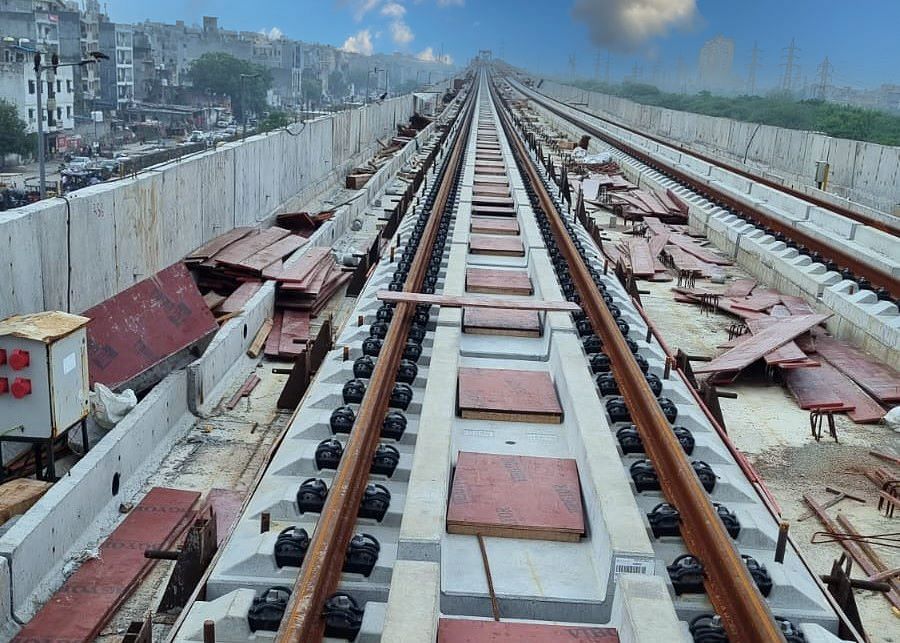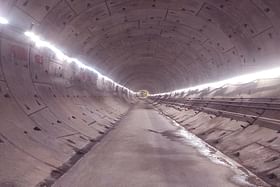The track-laying activities have commenced in the underground tunnels of the Delhi section, on the Delhi-Ghaziabad-Meerut RRTS corridor.
As part of this process, the track-laying activity has commenced on both the up and down platforms of the Anand Vihar station and at present, track slabs are being laid.
As this work progresses further, soon the track laying work will be carried out in the tunnels and proceed towards the New Ashok Nagar station.
The construction of both the parallel tunnels from Anand Vihar towards New Ashok Nagar, has already been completed.
Apart from this, approximately 2 km of track have been laid on the elevated section between New Ashok Nagar RapidX station and the underground tunnel ramp of Khichripur.
A total of 5 km of the track is to be laid on this elevated section, between Anand Vihar and New Ashok Nagar, for both the up and down lines, out of which around 2 km of track has been completed so far.
The construction of the viaduct from New Ashok Nagar towards the Khichripur ramp has already been completed, whereas the construction of the ramp, connecting the underground tunnel and the elevated section, is in its final phase.
With the completion of the ramp, the underground portion of the Delhi section will soon be connected to the elevated portion.

It’s for the first time in the country, an advanced technology is being used to produce high strength ballast-less track slabs. These ballast-less track slabs have a longer life span and require less maintenance, which in turn minimises the overall maintenance cost of this track to a considerable level.
High-quality concrete is used to manufacture these 4 m x 2.4 m long slab tracks. Laden on the trucks-trailers, these slab tracks are being brought to the site of the tunnel and the installation inside the tunnel has commenced. To provide strength to the track in the circular tunnel, firstly a plain cement concrete base is constructed.
In order to minimise the vibration in the tunnels caused by the movement of the high-speed trains, a mass-spring system is being used by National Capital Region Transport Corporation (NCRTC).
In the installation process of this mass-spring system, before laying the slab tracks in the tunnels, a layer of first-level concrete is applied on the surface of the tunnel.
After that, a mass-spring sheet is laid on this layer, and the track is laid on top of it. It reduces the vibration inside the tunnel to a great extent.
After the slab track is installed, the installation of the signaling system and traction will commence. With the help of this track technology, NCRTC will be able to run high-speed, high-frequency RapidX trains with a design speed of 180 kmph, and will ensure the safety and comfort of passengers during operation.
The construction work of the Sarai Kale Khan, New Ashok Nagar, and Anand Vihar RAPIDX stations in the Delhi-Ghaziabad-Meerut RRTS corridor has now reached the next phase.
At present, the construction of platforms and concourse levels is in the advanced stage and progressing at pace. In order to achieve the target of commissioning the entire Delhi-Ghaziabad-Meerut RRTS corridor by 2025, NCRTC is working day and night.
Before that, a 17-km-long priority section between Sahibabad and Duhai Depot in Ghaziabad is ready for operations and soon the RapidX services will commence on this section.


